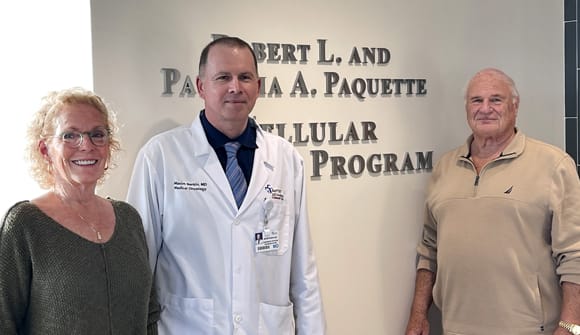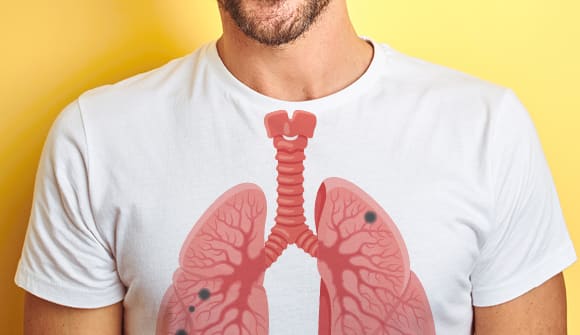Hidden infection
HPV-related throat cancers on the rise.
Article Author: Johnny Woodhouse
Article Date:

Human papillomavirus (HPV) is a sexually transmitted virus that nearly everyone has been exposed to by the time they reach adulthood.
For some, the infection will be asymptomatic, while others may go on to develop warts or even cancer.
Detecting HPV
According to the Centers for Disease Control and Prevention (CDC), 90% of HPV infections in both men and women will resolve on their own within two years, as the immune system fights off and clears the virus from the body.
Women routinely undergo a Pap test, a noninvasive procedure to look for changes in the cervical cells. The test can also detect early cancers in the cervix as well as potentially precancerous conditions.
Doctors may perform an anal Pap test in men and women at increased risk for cancer caused by HPV, but there is no approved test for HPV in the throat like there is for the cervix.
HPV-related throat cancer
Historically, cervical has been the most common HPV-related cancer, but over the past decade, cancer of the oropharynx (the tonsils and base of the tongue) has taken the top spot.
Researchers believe the rise is due to new and changing sexual behavior, including oral sex.
"While a majority of individuals are exposed to HPV in their lifetime, only a very small subset will eventually develop cancer," said Faisal Ahmad, MD, section chief of head and neck surgical oncology at Baptist MD Anderson Cancer Center.
-

Baptist MD Anderson Cancer Physicians
Faisal Ahmad, MD
Otolaryngologist (ENT), Surgical Oncologist, Facial Plastic Surgeon
Though they can be subtle, early symptoms of oropharyngeal cancer may include:
Earaches
Voice changes
Pain or difficulty swallowing
"Unlike cervical cancer, there is currently no screening method for HPV-associated cancers of the throat," Dr. Ahmad explained. "With the most common presenting symptom being an asymptomatic neck mass, any neck mass in an adult requires a further examination to rule out cancer. Other symptoms include a sore throat or a visible mass in the throat."
The good news is that HPV-related oropharyngeal cancers, which are more common in but not exclusive to men, are highly treatable if caught early.
Get vaccinated for HPV
So, can you lower your chance of getting HPV? Here are Dr. Ahmad's recommendations:
Get vaccinated. The CDC recommends HPV vaccination as early as 11 years old, as it is most effective when given prior to any sexual activity. Those who have high-risk behaviors or haven't yet had sexual activity are candidates for the vaccine until age 45.
Avoid sexual contact with a partner if genital warts are present.
Use condoms correctly every time you have sex.
"While vaccination doesn't prevent someone from being exposed to the virus, it will reduce the chances that exposure to a high-risk virus turns into a chronic infection that can turn normal cells into cancer cells," Dr. Ahmad said.
In 2021, 89.6% of adolescents aged 13-17 in the United States had received at least one dose of the HPV vaccine, according to the CDC. That increase is crucial to lowering the rate of HPV-attributable cancers.
"With more men and women receiving the vaccine, we believe there will be fewer people who develop this type of cancer over the next few decades," Dr. Ahmad said. "In the future, HPV-associated cancer may be completely eliminated with appropriate vaccination of both men and women."
Lower your risk for cancer with preventive care
A Baptist Primary Care provider can administer the HPV vaccine and either perform or help set up preventive care, like Pap tests. To schedule an appointment with a Baptist MD Anderson Cancer Center specialist, call 1.844.632.2278.



